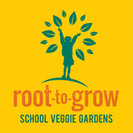A garden in every school represents an encouraging step towards a better understanding of how closely linked we are to our food supply and to nature and offers us the best opportunity to expose the invisible crisis in our country, (and world), CHRONIC MALNUTRITION.
Education and Skills Development
• Education and skills development for children of all ages – from early childhood development, pre-primary schools, primary schools and high schools.
• Aiming to equip local communities with the practical skills to achieve meaningful change.
• Strategies to educate and empower not only those within the Graham Beck team and their families, but in wider communities, is an investment in future growth and sustainability.
Health & Welfare / Poverty Relief
• Hunger relief in the form of food hampers, hot meals and soup kitchens.
These school gardens can make a real difference to these children’s health. The vegetable garden can:
• give children nutrient-rich vegetables which are lacking in their diet;
• show children how to grow, prepare and eat them;
• encourage families to grow them too;
• help children to understand what makes a good diet;
• help children to like nutritious home-grown food;
• show children the link between what they grow, what they eat and how they feel.
Root-to-Grow firmly believes the garden must benefit the children and be seen to do so. Food produced by the garden will be for the children, income will be for the school and education will be a clear priority.
Our practical aims are:
• to create successful, sustainable gardens using organic methods
• to produce food for the school and improve children’s diet
• to sell garden produce to get income for the school
• to improve the school environment (trees/grass/paths/ flowers)
• to reinforce some areas of the school curriculum – science, environmental studies and home economics
• to bring together school, children, families and community in a common endeavour
Our educational claims are:
• how to grow food for themselves in a safe and sustainable way
• to enjoy gardening and have positive attitudes to agriculture
• to talk to families and community members about gardening practices
• how to improve diet and prepare healthy meals with garden produce
• respect for and interest in their school environment
• environmental awareness and understanding, respect for nature, natural resource management
Expected outcomes are:
• by feeding young people well, we are feeding and nourishing our own future
• farming, ecological stewardship and a sense of place – play central roles in efforts to alleviate poverty
• the pleasure of good eating habits arises from respect, appreciation, connection, memory, trust and food stories





































